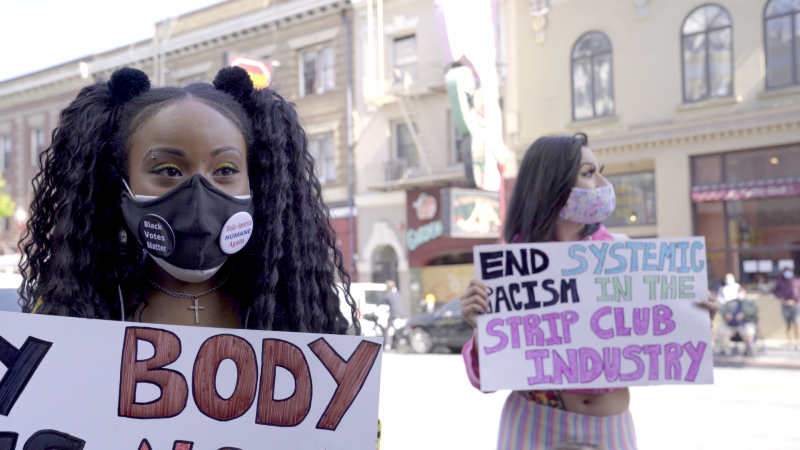After the pandemic forced strip clubs in San Francisco’s North Beach neighborhood to close and protests against police violence erupted in the summer, many dancers were laid off and started to work virtually instead.
This created an unexpected opportunity to push for more worker power among strippers, and fight back against issues like sexual harassment, racism, and a culture of fear around speaking out. And now, some dancers are hoping that this organizing will lead to better working conditions in strip clubs when the pandemic eventually ends.
Guests: Kathryn Hurd and Ellie Lightfoot, reporters and students at UC Berkeley’s Graduate School of Journalism
Episode transcript here.

